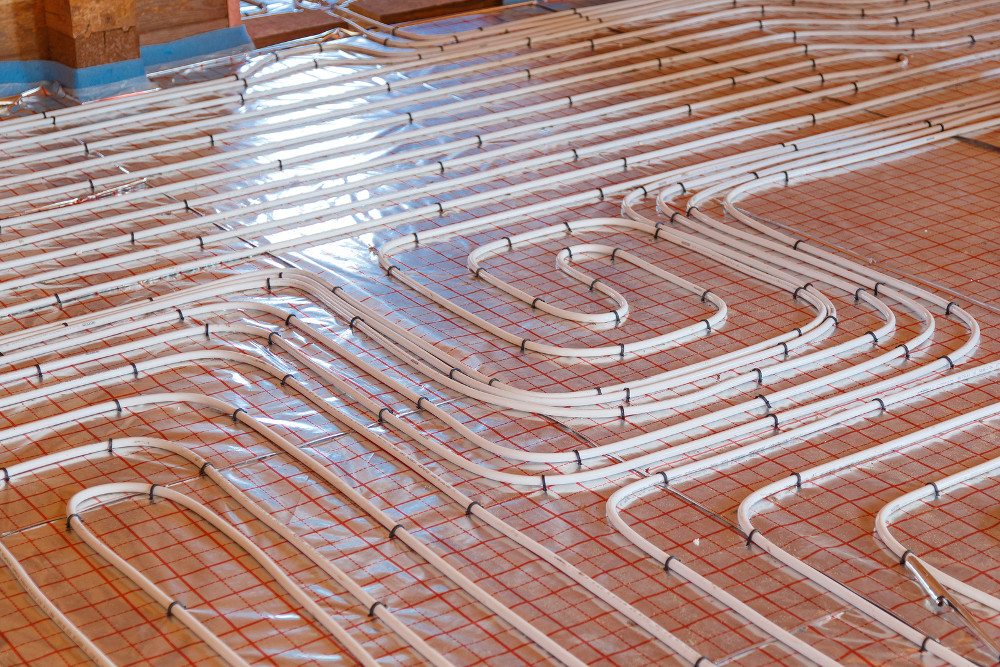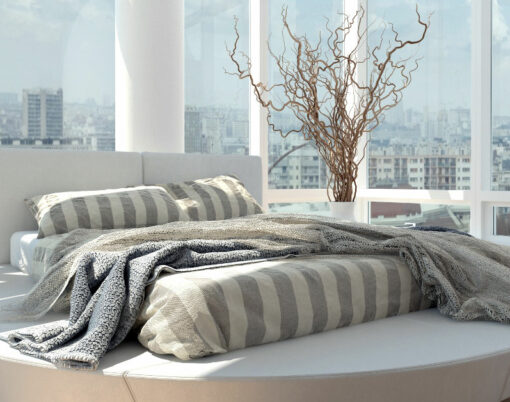Now the cold weather is setting in, it’s time to turn your mind to finding solutions for staving off the winter bite. Large country homes are difficult to keep warm all year round. If you struggle with the cold when you’re moving around the house, you may want to install an effective heating solution.
Conservatory heaters and replacement roofs

Many conservatories are redundant throughout the winter because of heat loss. An ideal solution for generating more heat is to install electric heaters specifically designed for extensions. Elegant conservatory heaters can be attached to the wall to blend seamlessly with your décor. Alternatively, a portable ceramic heater that can be transferred to other rooms may be preferable depending on your needs.
But generating heat is not the only issue for conservatories. The real problem is heat retention. Whilst double-glazed windows and doors perform admirably, they are not a round-robin solution because 35% of the heat is lost through the roof. Conservatory replacement roofs are the latest trend for retaining heat. Eye-catching styles include Victorian, double-hip, gable-fronted, and lean-to designs made from high-grade materials, such as glass, polycarbonate and tiles. Not only do replacement roofs retain the heat, but they also add an elegant finish to the exterior of your home. Seek out quotes for the roof replacement cost as well as roof repair cost and compare the pros and cons of both to ensure you are making the right decision for your needs.
According to Which? magazine, industry insiders say there is a growing trend towards luxury orangeries. These types of conservatories are small single-storey extensions often used as a garden room or sunroom. Many countryside homeowners find an orangery effortlessly blends in with a range of architectural styles.
A-rated combination boilers

A push towards low-carbon heating systems has ushered in an increase of high-performance boilers. Combination boilers, otherwise known as condensing boilers, are preferred in UK homes because they are highly efficient, reliable and practical.
Condensing boilers warm both your water and radiators directly from the unit within in a matter of seconds. Because there’s no need for a cumbersome storage tank there is more room in your airing cupboard or loft. On the contrary, condensing boilers are extremely compact and can be tucked neatly behind a cupboard door in the kitchen or under the staircase.
There are a wide range of combination boilers and manufacturers on the market. Unfortunately, not all of them are reliable. According to experts, the premium range of Worcester Bosch boilers come with an unbeatable choice of guarantees. For country homes with four or more bedrooms, you will need a 35kW combi boiler. These units will heat up to 20 radiators and comfortably manage two en-suite bathrooms.
Open fire

The romanticism of a log fire is the most enduring image of a quintessential English country home. This is underscored by the fact that 32% of search engine users looking for holiday cottages in winter use ‘open fire’ as a search term.
Since the move away from coal, open fires are less common today, yet log fires offer carbon-negative solutions other heating systems cannot match. Smokeless fuel also helps to keep the house dry and free from damp which many countryside cottages in the UK are prone to. If, however, you are not convinced by an open free and are looking for a slightly safer and easier to manage heater that looks just as good, an electric fireplace could be just what you are looking for. More information on choosing the right electric fire for you can be found here.
Underfloor heating

If you want to enhance a comfortable environment yet embrace a minimalist look, underfloor heating is the latest sophisticated technology that is ideal for keeping countryside homes cosy and warm. Since its introduction in new luxury housing, the trend is gaining popularity among country homeowners together with renovation projects that focus on clean, comfortable living.
Underfloor heating helps to prevent cold spots and draughts. The two types of heating systems are water-based and electric. Water systems run hot water through pipes whereas electric heating use wire beneath the floor.
Whilst traditional radiators need to be heated to temperatures of 65-75 degrees Celsius to sufficiently heat a room, underfloor heating only takes 29 degrees at most. Once installed, underfloor heating requires zero maintenance and comes with a lifetime guarantee.
Upgrading the heating system in your country home provides warmth and convenience, helps to lower your carbon footprint and protect the environment. And whilst you’re saving the planet, you’ll still be cosy and warm.





















